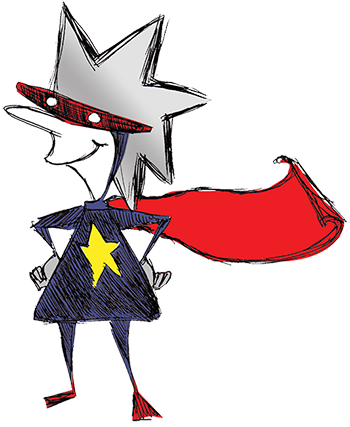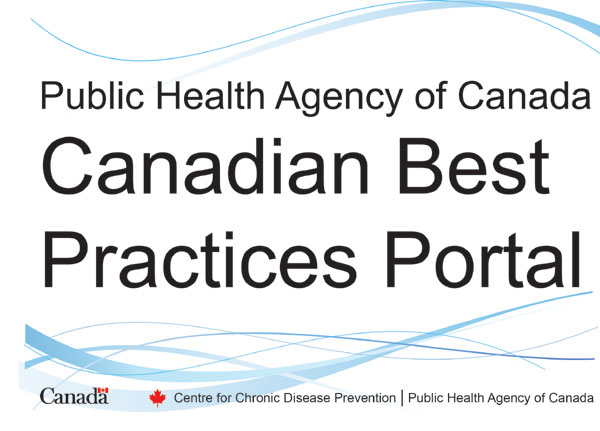The QUAZAR
Positive Behaviour Recognition Program
Many words have been written on the subject of bullying; numerous examinations, case studies, reports, papers, proposals, guidelines, and recommendations now exist to help address the challenging issue. Passionate to approach this issue from a different angle, Wynford partnered with PREVNet to create a unique program that reinforces positive behaviour and it is truly one of a kind.

The BUILD CHARACTER BUILD SUCCESS no cost program is designed to support and complement the Ministry of Education’s focus on character development. Today’s children are growing up in a society that has become accustomed to fast-paced living. Families are typically juggling two working parents, multiple children, and needing to care for extended family. Along with managing family life, there is an expectation for children to be involved in extracurricular activities and to have an active social life. These competing priorities can make it difficult to find time to reflect and consider if children are developing the appropriate competencies for future success.
The Toronto District School Board has established six Global Competencies that are integral to student development. These competencies include: (1) Critical Thinking and Problem Solving, (2) Global Citizenship and Character, (3) Communication, (4) Collaboration and Leadership, (5) Creativity, Inquiry and Entrepreneurship, and (6) Social Responsibility. Each of these six competencies have essential foundational skills such as responsibility, ability to work independently, initiative, organization, collaboration, and self-regulation.
Each of the activities included in Wynford’s Build Character Build Success program foster one or more of the Global Competencies. The Global Competencies are infused into the activities through facilitating practice of the essential foundational skills. Development of these skills will equip students to become successful contributors to our increasingly global society.
This program is currently implemented in elementary schools in Toronto as well as Kingston Ontario. In addition, this free program has been expanded to include the character traits that are being taught in the Durham, York Region and Peel District School Boards as outlined below.
Toronto District
- Respect
- Responsibility
- Empathy
- Kindness & Caring
- Teamwork
- Fairness
- Honesty
- Co-operation
- Integrity
- Perseverance
Durham District
- Teamwork
- Responsibility
- Respect
- Perseverance
- Optimism
- Kindness
- Integrity
- Honesty
- Empathy
- Courage
York Region District
- Respect
- Responsibility
- Honesty
- Empathy
- Fairness
- Initiative
- Perseverance
- Integrity
- Courage
- Optimism
Peel District
- Caring
- Cooperative
- Honest
- Inclusive
- Respectful
- Responsible
This program effectively communicates and instills the importance of character traits that, when fully understood and embraced by students, can help foster understanding and respect for one another, hence creating healthier relationships and aiding in the prevention of bullying. The Quazar Positive Behaviour Recognition Program is designed to better bring this to life and engage the entire school body by:
- Educating them through the fun and engaging “Quazar as Superhero” online videos (one episode per attribute)
- Providing a complete “plug and play” reward and recognition program for students who bring these attributes to everyday school life
- Providing information on how to launch the program, using existing school communications to maximize awareness and recognition (assemblies, newsletters, PA announcements, etc.)
- Providing complete information on how to effectively recognize and award attribute champions
- Providing online manuals containing in-classroom activities and suggested reading materials per attribute
- Providing access to online program materials
- Easy access to specific character trait resources through Pinterest (suggested readings, craft ideas, worksheets, bulletin board ideas, etc.)
- Providing online games and videos
- Providing smartboard-friendly or printable puzzles (word searches, crosswords, word scrambles, etc.)
- Providing champion photo templates
MESSAGE FROM THE PARTNERS
MESSAGE FROM DEBORAH NIVEN, PRESIDENT, WYNFORD
We are delighted to support and work with PREVNet for Knowledge Mobilization to promote relationships and eliminate violence through the Build Character, Build Success program.
As a for-profit company, we may be an unlikely partner and unique voice of support for this, but we are enthusiastic. Wynford is an employee engagement firm that creates business growth through employee reward, recognition and communication. We work with blue chip Canadian companies and have an established record of success. We are also a values-based corporation with an active commitment to corporate social responsibility, and are heavily engaged in the communities in which we operate.
We first came to know PREVNet through our shared passion to use our unique skills to contribute to the health and well-being of Canadian children and take an active role in violence prevention through character development. We are honoured to partner with them and you to bring this to your school.
Through our years of experience working with adults in the corporate world, we know that motivation works, and we know what works. We are excited to be able to translate that knowledge to working with kids to help motivate and engage them in the Build Character, Build Success program. This program is the first in Wynford’s new series of corporate social responsibility initiatives that seeks to support children and build healthy communities.
Sincerely,
Deborah Niven, President
www.wynfordtwg.com
101 Duncan Mill Rd, Suite 500, Toronto, ON M3B 1Z3
416.443.9696
MESSAGE FROM DR. WENDY CRAIG & DR. DEBRA PEPLER
Congratulations on beginning the very important journey of promoting healthy relationships and preventing bullying at your school. We are extremely excited about our partnership with Wynford and the opportunity to implement and apply rigorous research to the recognition campaign they have developed, and we have now augmented, that supports the Build Character, Build Success initiative. The program is designed to provide students with skills that underlie healthy relationships. With ongoing support, students are able to learn how to relate to others positively, be effective in achieving social goals, and use power positively, rather than negatively as in bullying.
As you know, bullying is a significant social problem. Over 1,100,000 Canadian school-aged children report being bullied at least once a week. And over 550,000 school aged children report bullying others at least once a week. Bullying is not a rite of passage. It is not a normal or expected part of childhood. It is a hurtful and aggressive act that we now know has lasting physical and mental health consequences. In extreme cases being bullied can lead to suicide.
The health and well being of both individuals and society are associated with the levels of antisocial activity within the population. Students who bully others often are more likely to engage in many forms of problem behaviour (e.g., delinquency, sexual harassment, dating aggression, substance use) compared to students who do not bully. There is an inter-generational link: parents who bullied in childhood are likely to have children who bully their peers. It is essential to intervene early to promote safe and healthy relationships in order to break the inter-generational cycle of using power and aggression to control and distress others.
Children develop the capacity to form healthy relationships from moment-to-moment learning experiences starting at birth. Children need warm and supportive relationships, as well as consistent messages and responses to support their healthy social development across all of the contexts in which they live, learn, work, and play. For the skills necessary to learn to read or to do mathematics, there is a step-by-step process that enables most children to acquire these skills. In comparison, the lessons for successful social interactions are much more complex: they require understanding of one’s own behaviours and emotions and the behaviours and emotions of other people. The others with whom children interact are highly variable and often unpredictable: even a single person varies from day to day in warmth, responsivity, and emotionality.
Finding solutions to bullying and creating a society where we stand up for one another is not easy, but together we can make a difference by becoming part of the solution and not part of the problem. We sincerely believe that this Build Character, Build Success recognition campaign may be a critical first step. Thank you again, for your participation.
Sincerely,
| Dr. Wendy Craig Professor of Psychology, Queen’s University Scientific Co-Director, PREVNet |
Dr. Debra Pepler Distinguished Research Professor, York University Senior Associate Scientist, Hospital for Sick Children Scientific Co-Director, PREVNet |
MESSAGE FROM DR. WENDY CRAIG & DR. DEBRA PEPLER
Congratulations on beginning the very important journey of promoting healthy relationships and preventing bullying at your school. We are extremely excited about our partnership with Wynford and the opportunity to implement and apply rigorous research to the recognition campaign they have developed, and we have now augmented, that supports the TDSB Build Character, Build Success initiative. The program is designed to provide students with skills that underlie healthy relationships. With ongoing support, students are able to learn how to relate to others positively, be effective in achieving social goals, and use power positively, rather than negatively as in bullying.
As you know, bullying is a significant social problem. Over 1,100,000 Canadian school-aged children report being bullied at least once a week. And over 550,000 school aged children report bullying others at least once a week. Bullying is not a rite of passage. It is not a normal or expected part of childhood. It is a hurtful and aggressive act that we now know has lasting physical and mental health consequences. In extreme cases being bullied can lead to suicide.
The health and well being of both individuals and society are associated with the levels of antisocial activity within the population. Students who bully others often are more likely to engage in many forms of problem behaviour (e.g., delinquency, sexual harassment, dating aggression, substance use) compared to students who do not bully. There is an inter-generational link: parents who bullied in childhood are likely to have children who bully their peers. It is essential to intervene early to promote safe and healthy relationships in order to break the inter-generational cycle of using power and aggression to control and distress others.
Children develop the capacity to form healthy relationships from moment-to-moment learning experiences starting at birth. Children need warm and supportive relationships, as well as consistent messages and responses to support their healthy social development across all of the contexts in which they live, learn, work, and play. For the skills necessary to learn to read or to do mathematics, there is a step-by-step process that enables most children to acquire these skills. In comparison, the lessons for successful social interactions are much more complex: they require understanding of one’s own behaviours and emotions and the behaviours and emotions of other people. The others with whom children interact are highly variable and often unpredictable: even a single person varies from day to day in warmth, responsivity, and emotionality.
Finding solutions to bullying and creating a society where we stand up for one another is not easy, but together we can make a difference by becoming part of the solution and not part of the problem. We sincerely believe that this Build Character, Build Success recognition campaign may be a critical first step. Thank you again, for your participation.
Sincerely,
Dr. Wendy Craig
Professor of Psychology, Queen’s University
Scientific Co-Director, PREVNet
Dr. Debra Pepler
Distinguished Research Professor, York University
Senior Associate Scientist, Hospital for Sick Children
Scientific Co-Director, PREVNet
PARTNERSHIPS / PROGRAMS
In partnership with PREVNet the Build Character, Build Success support program is part of a 10 project knowledge mobilization effort. These projects promote broad-based social change at the level of the child, socializing adult, community, industry, and nation, improving our ability to prevent violence and promote healthy relationships.








